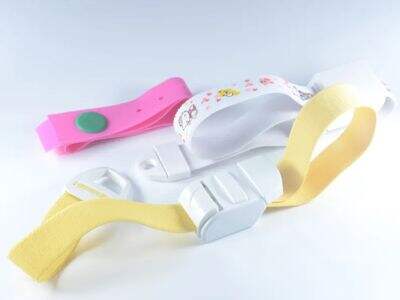Tourniquets are key tools that doctors and nurses employ to help stop bleeding during medical procedures. Tourniquets are made from various substances including nylon, polyester, and rubber. But what is the best material for tourniquets? 2, 3 Here we discuss the merits and demerits of each material as applied to various medical explanations.
Comparison of the Tensile Strength and Durability of Tourniquets Made of Nylon, Polyester, and Rubber
Military Grade Nylon Tourniquets are heavy duty and known for their strength. They are durable, and will be able to hold a lot of pressure without breaking. Polyester tourniquets are another strong and sturdy tourniquet, but they might not be quite as tough as nylon tourniquets. Rubber tourniquets, in contrast, are elastic and flexible, although they might not be as strong as nylon or polyester tourniquets.
In Vivo Assessment of Stretch and Flexibility of Tourniquet Materials
Elastic tourniquets are notorious for how much they stretch and bend. This feature offers convenience in applications and while used for medical operations. Nylon tourniquets are also pliable, though may not have as much give as rubber tourniquets. Polyester tourniquets are less pliable than nylon and rubber tourniquets, which may make them more difficult to use in some scenarios.
Comparison of the Comfort between Nylon, Polyester and Rubber Tourniquets
Nylon tourniquet is soft and pliable on the skin. They are non-irritating and do not itch, and thereby can also be used in patients with allergic skin. Polyester tourniquets are also comfortable, though not as soft as those made of nylon. A rubber tourniquet can, however, sometimes create skin irritation if worn for extended periods.
Investigation of Moisture Resistance and Laundryability of Tourniquet Components
Moisture-proof nylon tourniquets can be washed and disinfected and reused. Moisture-resistant polyester tourniquets may be problematic to clean as easily as nylon tourniquets. Rubber Tourniquets Rubber tourniquets can be washed with soap and water to clean, but take longer to dry than nylon and polyester ones.
Identifying the Right Tourniquet For Various Medical Scenarios
In summary, each tourniquet type has its advantages and disadvantages. Nylon tourniquets are tough, long lasting and suitable for most medical conditions. Polyester Polyester tourniquets may be stiff to the touch, but like nylon, they are very strong and durable though may not be as comfortable. Rubber tourniquets stretch and bend well, however they may not be as strong or comfortable as nylon or polyester tourniquets.
Table of Contents
- Comparison of the Tensile Strength and Durability of Tourniquets Made of Nylon, Polyester, and Rubber
- In Vivo Assessment of Stretch and Flexibility of Tourniquet Materials
- Comparison of the Comfort between Nylon, Polyester and Rubber Tourniquets
- Investigation of Moisture Resistance and Laundryability of Tourniquet Components
- Identifying the Right Tourniquet For Various Medical Scenarios

 EN
EN
 AR
AR
 BG
BG
 HR
HR
 CS
CS
 DA
DA
 NL
NL
 FI
FI
 FR
FR
 DE
DE
 EL
EL
 HI
HI
 IT
IT
 JA
JA
 KO
KO
 NO
NO
 PL
PL
 PT
PT
 RO
RO
 RU
RU
 ES
ES
 SV
SV
 CA
CA
 TL
TL
 IW
IW
 ID
ID
 LV
LV
 LT
LT
 SR
SR
 SK
SK
 SL
SL
 UK
UK
 VI
VI
 SQ
SQ
 ET
ET
 GL
GL
 HU
HU
 MT
MT
 TH
TH
 TR
TR

